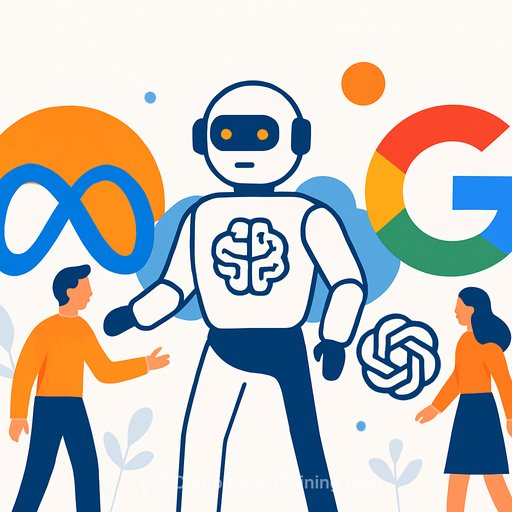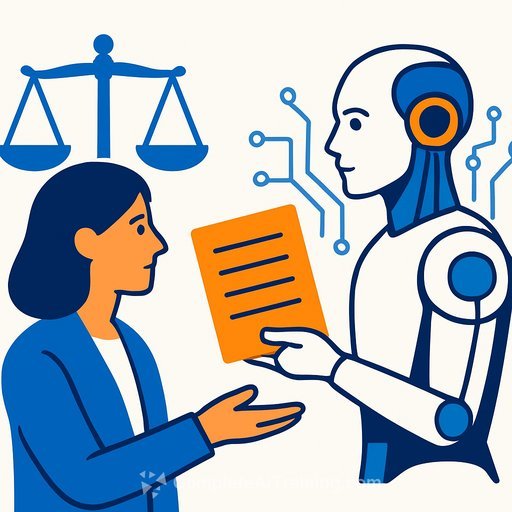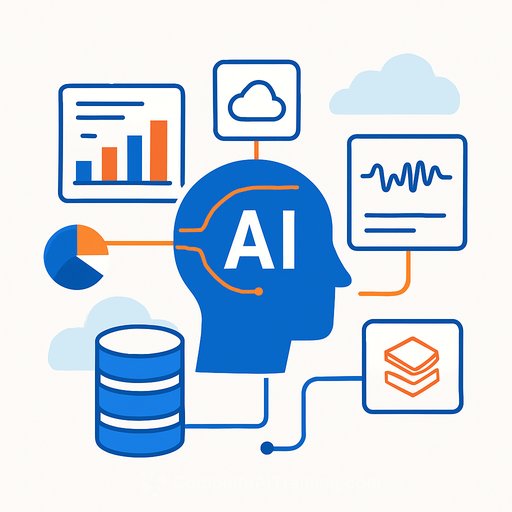Meta Explores AI Collaboration with Google and OpenAI
Meta Platforms is in talks with Google and OpenAI to potentially integrate their AI models into its expanding AI lineup. Inside Meta Superintelligence Labs, the company’s new AI division, discussions have focused on incorporating Google’s Gemini model to enhance Meta AI’s chatbot capabilities. The goal is to deliver more accurate and natural text responses when users engage with Meta’s services.
OpenAI’s models are also part of these conversations, with a view to improving AI features across Facebook, Instagram, and WhatsApp. These potential partnerships would be temporary measures, aimed at bridging gaps while Meta continues to develop its own technology.
Meta’s Focus on Homegrown AI Development
Despite exploring external collaborations, Meta remains committed to advancing its in-house AI efforts. The company is prioritizing the development of Llama 5, a large language model intended to compete directly with OpenAI’s GPT series and Google’s Gemini.
This pragmatic approach reflects the urgency Meta feels in the AI race. With competitors already releasing sophisticated products, Meta wants to avoid falling behind. Leveraging AI from Google or OpenAI in the short term can keep Meta’s systems competitive and engaging while its own models mature.
Blending External AI with Internal Innovation
Meta has already shown a willingness to incorporate external AI technology alongside its own. For example, employees have access to a coding assistant powered by Anthropic’s models, which helps speed up software development and testing.
A company spokesperson described this as an “all-of-the-above approach,” combining self-built AI models, partnerships with leading players, and open-sourcing technology. Meta has actively released earlier Llama versions to researchers and developers, encouraging collaboration and innovation.
To support this strategy, Meta has invested billions into growing its AI division. Mark Zuckerberg brought in Alexandr Wang, former CEO of Scale AI, and Nat Friedman, ex-CEO of GitHub, to co-lead the project. The lab has recruited top-tier researchers with competitive salaries to accelerate progress.
How Meta’s Strategy Compares to Other Tech Giants
Meta’s approach sits between Microsoft and Apple’s AI strategies. Microsoft invested heavily in OpenAI early on, integrating GPT models deeply into its products. Apple struck a balance by collaborating with OpenAI for ChatGPT integration on the iPhone while developing its own AI system.
Meta aims for flexibility, mixing partnerships with its own models when beneficial. It invests heavily in talent and research like Microsoft, but also openly shares parts of its technology, which helps build developer goodwill and pressures competitors with closed models.
For users, this could mean richer AI experiences across Meta’s social platforms, which serve billions worldwide. For the industry, Meta’s willingness to cooperate—even temporarily—with rivals like Google and OpenAI highlights that collaboration may sometimes be necessary to stay competitive.
Looking Ahead: The Role of Llama 5
Ultimately, Meta’s success depends on Llama 5 and future models matching or surpassing Gemini and GPT. If that happens, the company may no longer need external AI partnerships.
Until then, deals with competitors could serve as a bridge, keeping Meta’s AI offerings relevant and competitive in a fast-moving field.
For IT professionals and developers interested in the latest AI advancements, exploring training resources can be valuable. Check out Complete AI Training’s latest courses to stay updated on AI tools and techniques.
Your membership also unlocks:





